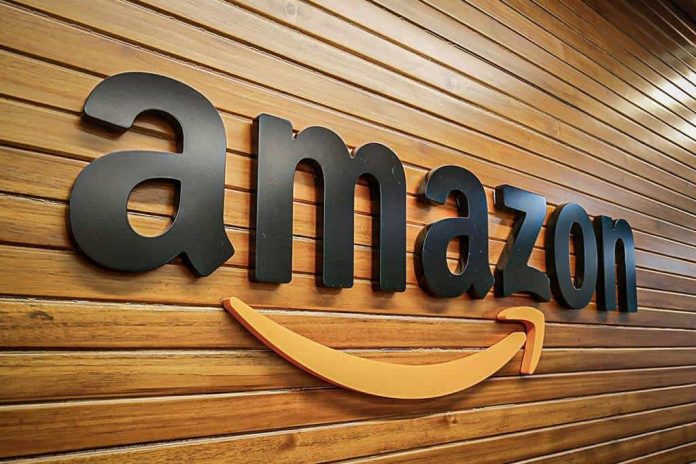This article is written by Aishwarya Menon, pursuing Diploma in M&A, Institutional Finance and Investment Laws (PE and VC transactions) from Lawsikho.
Table of Contents
Introduction
“Innovation is taking two things that exist and putting them together in a new way”. The growth of digital technology and smartphones in the last decade coupled with unprecedented speeds and power of computing along with the inherent need of people to shop for essentials and luxuries are the two things that are required to be put together to benefit the consumer. This was the germination of the startup Perpule 4 years ago whose founders saw an opportunity in this field. The ultimate goal of an entrepreneur launching a startup is to prove a business idea. The concept or idea gets ratified when a large company plans a takeover of the firm and product. There have been innumerable examples of such takeovers which are eBay and Paypal, Google and Android, IBM and Redhat to name a few.
One of the biggest and most valued public companies in the world today is Amazon. Their journey started nearly 30 years ago in a garage. It started as a small online book retailer and has become a global phenomenon, spanning home delivery, cloud computing, advances in artificial intelligence, and the streaming of movies and sports. Amazon has built its market all around the world including India. The COVID-19 pandemic has benefitted the e-commerce wing of Amazon globally with unprecedented growth and opportunities. They see India with its huge population, inherent demand and low-cost resource pool as a big market and they have been pursuing an aggressive strategy to penetrate the Indian markets. Amazon has engaged closely with physical stores in India in recent years, using its vast presence in the nation to expand its delivery network and warehouses and even just relying on their inventory to drive sales. Amazon’s strategy has been to look for investment to explore partnerships with organized retailers” to “enhance the efficiency of last-mile fulfilment” all of which would end up “ultimately driving its e-commerce flywheel.”
Background of the acquisition
In their endeavour to grow and scale quickly, Amazon has acquired a startup Perpule in India that is helping offline stores go online, the e-commerce group’s latest attempt to make inroads in the world’s second-most populous nation where brick and mortar continue to drive more than 95% of sales. The American e-commerce group has announced that it has acquired Perpule, a four-year-old Indian Bangalore based startup. A regulatory filing showed Amazon Technologies paid $14.7 million to acquire the Indian startup in an all-cash deal. The company is expected to spend an additional $5 million or so to compensate Perpule’s employees. The four-year-old startup has raised close to $4.7 million till date from Prime Venture Partners, Kalaari Capital, Venture Highway and Taxiforsure co-founder Raghunandan G. Most of Perpule’s staff including co-founders Abhinav Pathak, Saketh BSV and Yogesh Ghaturle are expected to join Amazon.
The Bangalore-based startup has expanded in recent years, launching products like StoreSE which enables a business to support group ordering. They expanded geographically to other Southeast Asian markets which are Indonesia, Malaysia, Thailand and Vietnam. The startup launched its first product in late 2016, which focused on helping customers avoid queues at super chains such as Shoppers Stop, Spar, Hypermarket and Big Bazaar. But the product failed and that is when the startup decided to move to a new product. Perpule then raised $6.36 million to build a product that offers a mobile payments device (point of sale machine) to offline retailers to help them accept digital payments and also establish a presence on various mini-app stores including those by Paytm, PhonePe and Google Pay in India. The innovative cloud-based POS enables offline stores in India to better manage their inventory, checkout process and overall customer experience. Amazon’s aim of acquiring the startup was devoted to digitizing neighbourhood local mom and pop stores called Kirana stores in India and it’s all part of its new “Smart Stores” initiative, which they had launched in June 2020. But Amazon’s interest in Kirana stores goes much deeper than a desire to just make profits from digitizing small businesses. Instead, Amazon sees small stores as both drivers of fulfilment for the company and as sources of growth for other Amazon products, including Amazon Pay.
Currently, Amazon is the second-largest online retailer in India, just behind Walmart-owned Flipkart. India’s e-commerce market is expected to become a significant force in the next coming years. India’s retail market is heavily dependent on local stores. Unlike the U.S., where the mom-and-pop stores make only 15% of the retail market, in India the number is 85%, this is the reason for such intense focus by Amazon on Kirana stores. The opportunity to digitize the way Kiranas procure their goods is largely untapped. Getting Kirana stores to sign up to sell on Amazon could boost the overall number and assortment of products on the Amazon Marketplace.
Methodology
These neighbourhood stores offer all kinds of items, are family-run and pay low wages and little to no rent. Because they are ubiquitous there are more than 30 million neighbourhood stores in India, according to industry estimates no retail giant can offer faster delivery. On top of that, their economics are often better than most of their digital counterparts. The idea behind the acquisition of Perpule is to increase the seller base as digitized Kiranas can list their inventory on Amazon’s Smart Stores marketplace. Amazon’s Smart Stores program, for instance, is a subset of its payment service Amazon Pay. With this, Amazon plans to up its game in the Kirana-tech space as it would now leverage Perpule’s cloud-based point-of-sale (PoS) offering ‘UltraPoS’ and offer a new suite of technology products to Kirana partners, while digitizing neighbourhood stores.
Through Smart Stores, Amazon digitizes a Kirana store’s product catalogue, then makes the catalogue fully viewable by scanning a QR code. A customer who visits a Kirana store in person or online can scan the QR code and place orders through the Amazon Pay app. By acquiring Perpule, Amazon will be accelerating the number of neighbourhood stores it digitizes, and therefore grow the number of users that may opt for its payment technology. Kirana stores have also become an increasingly potent tool for growth and diversification. While Amazon has rapidly grown its physical presence in India, it has only about 60 fulfilment centres across the country. This is minuscule compared to the 208 fulfilment centres in the US, this is mainly because India is heavily weighted toward hyper-local fulfilment and delivery. About 44% of all e-commerce deliveries in India are shipped within a few kilometres.
Pandemic as an opportunity
The pandemic has pushed many once-analogue stores’ plans to go online. These stores now saw the benefit of being online as they can reach their consumers in the safety of their homes. This created an opportunity for a growing suite of tech companies including Perpule, as well as others like SnapBizz who have popped up to help digitize Kirana stores. Facebook, largely through its shoppable WhatApp stores, has also tried to make it easier for these local stores to publish their catalogues online and facilitate transactions within WhatsApp. About 60% of Kirana stores expressed willingness to work with these retail tech platforms, compared to 7% prior to the pandemic. Now Amazon is looking to seize the moment and capitalize on the new requirement and shift of mindset of the local shopkeepers. One very important aspect is to keep it technologically simple and also entail minimum upfront investment to go online. There has to be no precursors or conditions placed on these stores as that can be a dissuading factor. Over here the widespread use of cheap smart mobile phones that have penetrated the masses in India coupled with low-cost connectivity and internet data proved beneficial. Perpule’s cloud PoS will help offline stores of all sizes manage their operations better. Over here cloud is the solution and the customer’s smartphone is the interface eliminating the need for the stores to have any infrastructure of their own.
Perpule’s PoS billing solution product UltraPOS helps retailers in the electronics, fashion, food and beverage, and groceries sectors to improve their efficiency. Its clientele base includes Big Bazaar, Oyo, Udaan, Curefit, Wakefit, 24SEVEN among others. In addition, Amazon’s payment arm Amazon Pay used the ‘Smart Stores’ feature which it launched in June 2020 to help users scan the store’s QR code and explore products inside the store. It’s positioned to increase footfalls and drive sales for retailers. Retailers have started using the feature to enable digital storefronts instantly. It appears that Perpule would power and drive the adoption of Smart Stores with its PoS solution.
Legal aspects of the deal
Acquisition of small companies is the most common inorganic growth strategy followed by big giants. Here, Amazon has a massive presence in the Indian markets. The acquisition of Perpule has helped Amazon enter the Kirana markets in India. The Amazon-Perpule deal was an all-cash deal of Rs 107.6 crore. It also includes a further Rs 40 crore payment as additional remuneration to the startup’s employees. The following basic legal aspects of acquisitions need to be considered:
1. Due diligence and intellectual property
A thorough investigation and a background check should be done of the firm being acquired. The intellectual property rights pertaining to point-of-sales (PoS) technology should be transferred to the acquiring company without assignment to other parties. The legal ownership of the intellectual property should vest with the acquirer after the transfer.
2. Confidentiality and non-disclosure agreements
As the acquisition entails an innovative technology, it is pertinent from the seller’s perspective to ensure that the acquirer and its representatives sign confidentiality and non-disclosure agreements ensuring that they are legally bound and do not disclose details of the technology even if the acquisition falls through.
3. Regulatory aspects
Since the acquisition is a foreign investment into an Indian start-up company it is necessary to examine the Foreign Direct Investment Policy of the Government of India. The FDI Policy permits investment under the automatic route (i.e. without any prior approval of the government of India) since the acquisition in this case is in the technology sector. Furthermore, it is important to note that since the target Indian company is engaged in a regulated sector such as the e-commerce sector then the sectoral rules applicable to such sector under the FDI Policy may also apply and will therefore have to be examined. Rule 11UA (2) of the Income Tax Rules, 1962 prescribes the method for the valuation of the fair market value of unlisted equity shares of Indian companies in case of an acquisition. The value can be determined either on the book value method or the fair market value of the unquoted equity shares as determined by a merchant banker using the discounted free cash flow method.
Conclusion
The Amazon-Perpule deal is a great example of how business can be created from an opportunity and how innovation can be leveraged by some smart startups to create lasting value for the investor. In today’s world, it is imperative that we use technology and the rapid use of the fast-spreading internet to create new businesses. As seen this deal is a good example of innovation of putting both the needs together for the benefit of the consumer, society and nation as a whole.
References
- https://economictimes.indiatimes.com/tech/startups/amazon-buys-perpule-in-all-cash-deal/articleshow/81780689
- https://www.modernretail.co/platforms/why-mom-and-pop-stores-are-central-to-amazons-india-strategy/
- https://techcrunch.com/2021/03/30/amazon-acquires-indian-retail-startup-perpule/
- https://www.livemint.com/companies/news/amazon-acquires-perpule-to-bolster-kirana-tech-play
- https://www.conventuslaw.com/report/india-key-legal-aspects-in-the-acqusition-of-start/
Students of Lawsikho courses regularly produce writing assignments and work on practical exercises as a part of their coursework and develop themselves in real-life practical skills.
LawSikho has created a telegram group for exchanging legal knowledge, referrals, and various opportunities. You can click on this link and join:
 Serato DJ Crack 2025Serato DJ PRO Crack
Serato DJ Crack 2025Serato DJ PRO Crack











 Allow notifications
Allow notifications


